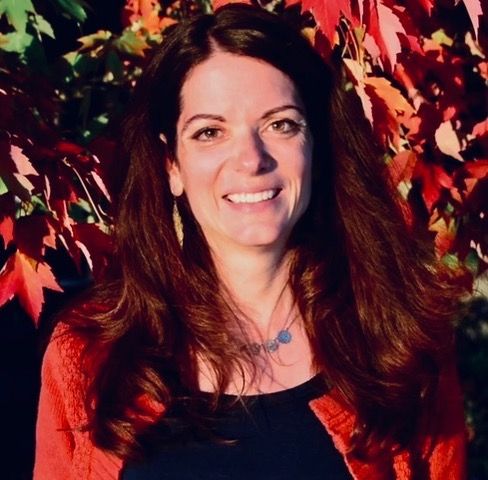Knowing and Unknowing
Aug 22
/
Irene Dunlop

From the earliest known history, it seems humans have been wondering and telling stories. These stories speak to our longing to know what exists beyond ourselves, to make meaning of our days and our place in the cosmos.
In the Bible, we encounter the story of God in the experience of the Hebrew people. Pictured is a God who draws close, a God who intimately creates the universe out of the flow from God’s own being—words and breath.
This is a God who walks and talks with created beings. Who eventually embodies God’s self in human flesh so God might be more fully known. God co-creates a dance of spirituality, of God’s seeking us and our seeking God. It is the slow unfolding of intimate relationship.
Incarnation is the jewel of Christian spirituality. Unlike the Greek gods far removed on the top of Mt. Olympus, separated from earth by the clouds, and who rain down blessings or disasters at their whim; Christians seek a God who is known through a dynamic, reciprocal relationship with people.
Cataphatic knowledge of God— we can know and name positive characteristics of God—is the foundation for most of western theology. God is love, God is faithful, God is present. This knowledge helps us know what we are looking for in our search for God.
But perhaps the Greeks weren’t all wrong. As is true of other faiths, Christian tradition also carries the idea that God is mysterious, and in our finite limited humanness we cannot comprehend all of God. God is by definition beyond us.
When Moses asks God what to say when asked who sent him, God answers with a riddle: “I am who I am.” Possibly a more faithful translation to the breadth those Hebrew words hold is, “I am who I will be” or “I am who I am becoming.” These words hint at an apophatic knowing of God, an unknowing. This experience of God is beyond description, touched only in encounter with the One who is wholly beyond our comprehension, with the mystery of God.
Many of us have apophatic encounters with God, moments we experience something of God that defies words and concrete reasoning. This unknowing is explored in the writings of the Christian mystics and can be cultivated through practices of attention such as silence, stillness, and solitude.
God, indeed, shows up in both cataphatic and apophatic ways in personal experiences of divine grace. God is as knowable as a parable taught by Jesus, and as mysterious as the ocean depths.
The cataphatic and apophatic work together to support us in our quest for God. When my son Abram was small, one of his favorite books was the small board book Boats by Byron Barton. Full of bright colors and myriad vessels, we named boat after boat over and over again, describing how each one moved through the water with paddles, by wind, or motor.
Smitten by sail boats, Abram could name all the parts of a boat--the mast, keel, rudder, and so on. He pointed out boats being transported on trailers or on the water at the local lake. But not until we purchased a small sailboat, buckled him up in a child size life jacket, raised the main and pushed off from shore did he understand what it meant to sail, to be carried along silently by the wind.
He had all the cataphatic knowledge of boats he needed to recognize them, believe in them, and trust one enough to step on board, but when the wind caught the sail, he entered into an experience wholly beyond his expectations or understanding.
Some of us begin our spiritual journey through apophatic encounter with God. A divine encounter leads to questions and we find ourselves moving toward the cataphatic. What happened? Who is God? How do I know God?
If we have grown up in western culture, we often first have some cataphatic frame for the divine, robust or weak as it may be. God is ___________________ (fill in the blank). Due to the priority placed on cataphatic understanding of God since the Enlightenment, we sometimes find ourselves stuck in our heads, longing to translate knowledge to knowing. The cataphatic and apophatic inform each other, like a continuously flowing circle, moving us along a spiritual pathway toward deeper understanding of God.
Contemplative spiritual practice is an opportunity to taste the depth and breadth of God available to us as we lean into the unknowing of God. Through the practice of noticing, listening to Spirit speaking within, we become present to our embodied experience. This new awareness invites us to consciously incarnate our knowledge of God in our daily living. This intertwining of knowledge—embodiment—trust invites us to open ourselves to mystery as we lean into God who is always just beyond our comprehension.
This fall I invite you to join me as I host space to engage in embodied spiritual practice. We’ll lean into the mystery of God as we open ourselves to the Spirit through contemplative practices using art, nature, sound, movement and meditation. Join me by signing up here for one or all in the Incarnate Faith series.
In the new year, I’ll be offering in depth classes on each of these topics beginning with Incarnate Faith: Art as a door to the soul.

Irene Dunlop
Irene’s fascination with how we, as embodied humans, experience the flow of divine love motivates her work. Irene is an artist, writer, yoga instructor, former pastor and current spiritual director. Injuries sustained in car accidents, necessitated a healing journey through which she encountered Iyengar yoga. As a practitioner for 10+ years, Irene found herself exploring the tensions between the embodiment she experienced in her physical yoga practice and her mostly thought-centered faith— both illuminated the holy. This exploration led her to Richard Rohr’s Living School. Study of the mystics and embodied spiritual practice continues to draw her toward a more fully integrated sense of self, spiritual and physical. Ascribing to the belief that God is revealed in all things, Irene delights in her family, faith community, creating with flowers, food, fabric and paint, hiking, sailing the Salish sea, and hot cups of ginger tea. https://www.tendsoulcare.com/

